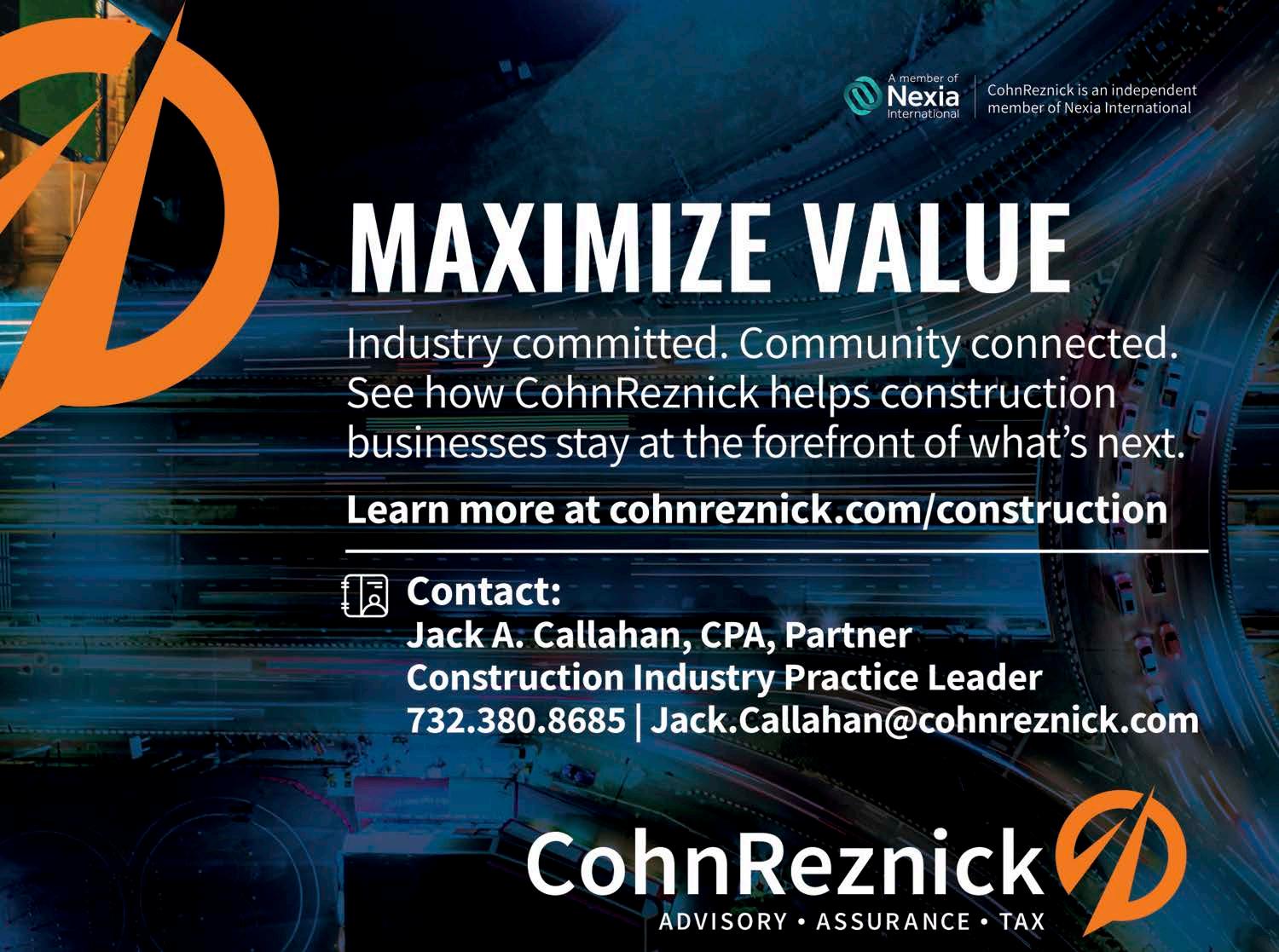
4 minute read
u.s. department of labor's proposed rule changes for independent contractors and the impact on the construction industry
By: nicolas sullivan, esq., florio, perrucci, steinhardt, cappelli, Tipton & Taylor LLC
On October 13, 2022, the United States Department of Labor (“DOL”) published a proposed rule change (“2022 Rule”) in the Federal Register. The 2022 rule was open for public comment until November 28, 2022, extended by the DOL until December 13, 2022. The purpose of the 2022 Rule is to clarify who is defined as an independent contractor under the Fair Labor Standards Act (“FLSA”). The FLSA requirements related to minimum wage, overtime, and recordkeeping apply to employees, but do not apply to independent contractors. The 2022 Rule would rescind the DOL’s 2021 Rule, which heavily weighed the control over the work and the opportunity for profit or loss in determining the status of an independent contractor.
The FLSA defines employer to “include any person acting directly or indirectly in the interest of an employer in relation to an employee.” The FLSA defines “employee” as “any individual employed by an employer.” Employ is defined to include “to suffer or permit to work.” Under the FLSA, employees are entitled to certain benefits, which are not required to be provided to independent contractors. Generally, the FLSA requires covered employers to pay nonexempt employees at least the Federal minimum wage for all hours worked and at least one and one-half times the employee’s regular rate of pay for every hour worked over 40 hours in a workweek. The FLSA requires covered employers to maintain certain records regarding employees and prohibits retaliation against employees who are discharged or discriminated against after taking certain protected actions, such as inquiring about their pay or filing a complaint with DOL.
The FLSA does not require a covered employer to pay Federal minimum wage or provide overtime protections to independent contractors. Although the FLSA does not define independent contractor, “independent contractor” is understood to refer to workers, who as a matter of economic reality, are not economically dependent on their employer for work and are in business for themselves.
In the 2022 Rule, the DOL proposes returning to the historically used totality of the circumstances analysis of the economic reality test and focus on whether the worker is economically dependent on the employer for work versus being in business for themselves. Unlike the DOL’s 2021 Rule, the 2022 Rule would not use predetermined weighing of factors and would require considering the factors comprehensively instead of reviewing the factors as independent and unrelated.
Under the 2022 Rule, an employee would be defined to include any individual whom an employer “suffers, permits, or otherwise employs to work.” This definition is intended to encompass all workers who “as a matter of economic reality, are economically dependent on an employer for work.” An independent contractor is defined only as a worker who, as a matter of economic reality, is in business for themselves. Economic dependence would not focus on the amount of income earned by a worker, or whether that worker has other income streams, but would use a six-factor test to determine whether a worker is economically dependent on the employer under the totality of the circumstances. None of the factors are given a predetermined weight but all such factors are considered as a whole under the 2022 Rule. These six factors are as follows:
1. Whether the worker exercises managerial skill that affects the worker’s economic success or failure in performing the work including examining whether the worker determines or can meaningfully negotiate the charge or pay for the work provided; whether the worker is able to accept or decline jobs; whether the worker chooses the order and/or time in which the jobs are performed and other factors. If a worker has no opportunity for a profit or loss, then this factor suggests the worker is an employer.
2. Whether a worker’s investment is “capital or entrepreneurial in nature.” This factor finds the costs borne by a worker to perform a job, such as tools and equipment, are not capital and entrepre- neurial, but indicate employee status.
3. Whether a work relationship is indefinite in duration or continuous, which suggest employee status, or whether the relationship is definite in duration, non-exclusive, project-based, or sporadic, which is indicative of independent contractor status.
4. The employer’s control over the performance of the work and economic aspects of the working relations including whether the employer sets the worker’s schedule, supervises the performance of the work, or explicitly limits the worker’s ability to work for others.
5. Whether the work performed is an integral part of the employer’s business. This means whether the function performed by the worker is an integral part of the business including if the work performed is critical, necessary, or central to the employer’s principal business it would weigh in favor of the worker being an employee.
6. Whether the worker uses specialized skills to perform the work and whether those skills contribute to the business initiative.
In addition to the 2022 Rule, employers must also consider the New Jersey ABC Test under the Unemployment Compensation Law. Under the ABC Test, N.J.S.A. 43:21-19(i)(6)(A)-(C), the default is that a worker is considered an employee unless an employer can provide evidence to satisfy the three ABC Test factors to prove the worker is an independent contractor. Failure of an employer to prove all three factors will result in a worker being classified as an employee. The burden is on the employer to prove a worker is an independent contractor. The three factors under the ABC Test are:
1. The worker has been and will continue to be free from control or direction over the performance of such service, both under his or her contract of service and in fact; and
2. The service is either outside the usual course of the business for which such service is performed, or that such service is performed outside of all the places of business of the enterprise for which such serve is performed; and

3. The worker is customarily engaged in an independently established trade, occupation, profession, or business.
The 2022 Rule has yet to go into effect. However, based on the language of the 2022 Rule, as currently proposed, and the ABC Test, it could soon be more difficult for employers to classify workers as independent contractors in New Jersey. It is recommended that employers begin to take steps to review the status of their workers and determine if the enactment of the 2022 Rule will have any impact on the employer and its business.
Nicholas A. Sullivan, Esq., is an Associate in the Cherry Hill office of Florio, Perrucci, Steinhardt, Cappelli, Tipton and Taylor, LLC. He may be contacted at nsullivan@floriolaw.com











